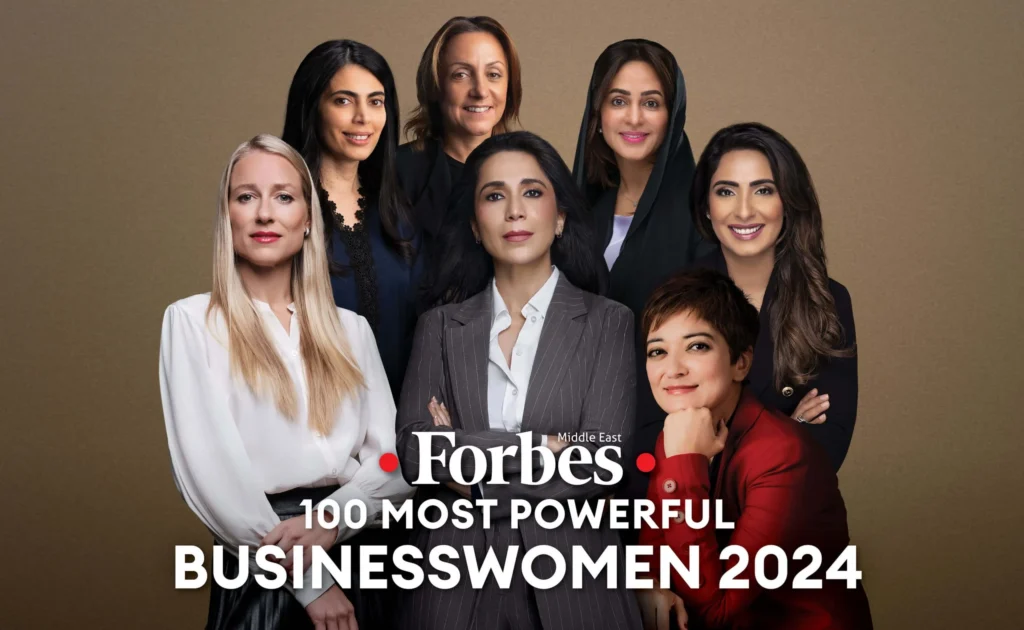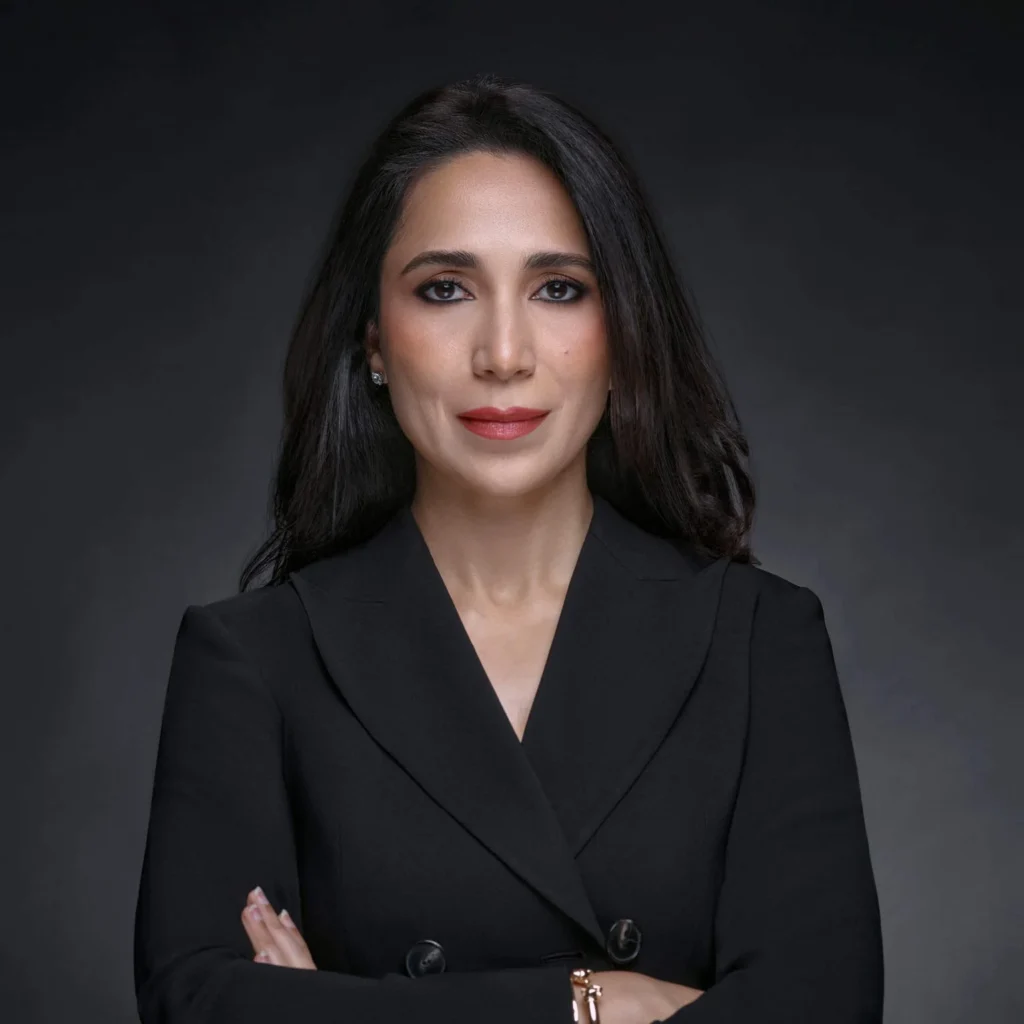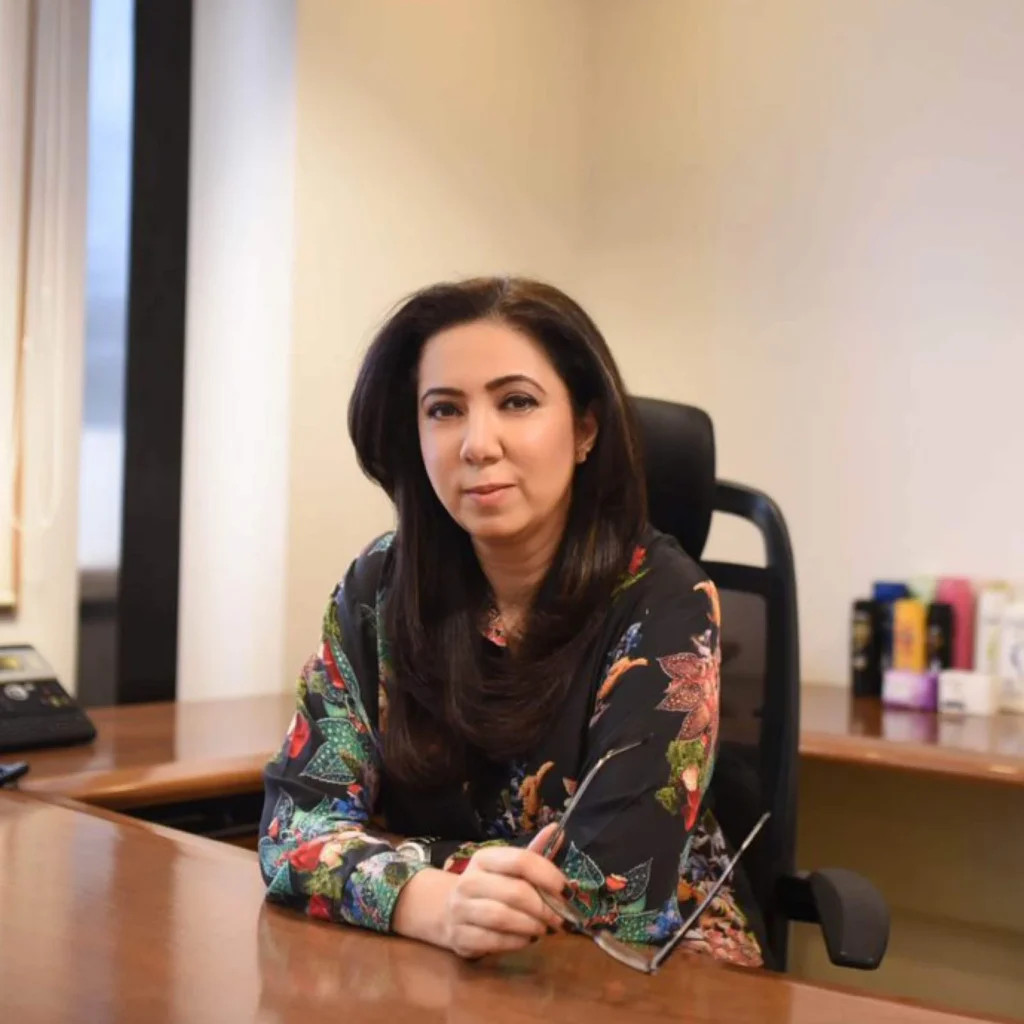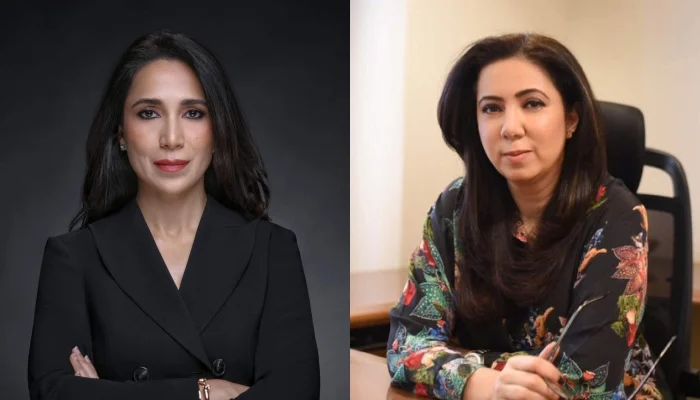Shaista Asif, the CEO of ‘Pure Health Holding’ holds the fourth position, while Shazia Syed, the General Manager of ‘Unilever’ North America, Levant, and Iraq, is positioned at number nine on the list.
Two Pakistani women have been recognized by Forbes, a global business magazine, as two of the most powerful top 10 female executives in the Middle East.

Shaista Asif
Shaista Asif, ranked fourth in Forbes’ ‘The Middle East’s 100 Most Powerful Businesswomen 2024’, serves as the co-founder and group CEO of Pure Health Holding, a healthcare network based in the UAE.

Having co-founded the healthcare entity in 2006, Shaista assumed the role of group CEO in December 2023. According to Forbes, the company’s initial public offering (IPO) in December 2023 raised $986 million by offering 10% of its issued share capital on the Abu Dhabi Securities Exchange (ADX).
The IPO witnessed overwhelming demand, with the professional subscriber tranche oversubscribed 54 times and the retail tranche 483 times. In January 2024, the company acquired the UK’s largest independent hospital operator, Circle Health Group, for $1.2 billion before debt.
Furthermore, in the same month, Pure Health acquired Sheikh Shakbout Medical City, the UAE’s largest healthcare complex, for $600 million, boasting revenues of $585.4 million.
Shazia Syed
Shazia Syed, the General Manager of Unilever North Africa, Levant, and Iraq, and also the Arabia Senior Customer Development Lead, holds the ninth position on the list due to her vast experience in leading multinational corporations.
Formerly the CEO of Unilever Pakistan, Shazia has held significant positions such as president of the Overseas Investors Chamber of Commerce & Industry and director of the Pakistan Business Council. She took on the role of general manager for North Africa, Levant, and Iraq in 2021.
Originally from Abbottabad, Shazia began her career with the British multinational consumer goods company as a management trainee in Pakistan back in 1989.

From leading Unilever’s Personal Care in Vietnam to steering as CEO in Sri Lanka and later ascending as the global Executive Vice President for Unilever’s Beverage empire, Syed’s trajectory is a tale of unparalleled success.
Forbes noted that she is a board member of United Bank Limited in Pakistan, serving on the Board Risk & Compliance Committee and chairing the Board Audit Committee. Previously, she served on the boards of Pukka Tea and Pepsi Lipton.
In a post on LinkedIn, Syed said she was “delighted to be recognised” by Forbes and share the space with “99 other brilliant thought leaders and change-makers of the region.”
“To me, personally, it’s a wonderful reminder of boldly championing my values in my personal and professional leadership journey,”
“I am humbled and proud to represent Unilever and deeply grateful to every person in the organization who has contributed to my journey of enabling change both internally and externally.”
This year’s list of the Middle East’s 100 Most Powerful Businesswomen 2024 features 100 entries, with 104 women from 27 different sectors and 28 nationalities. The banking and financial services sector leads the list with 26 entries, followed by healthcare with 13, and investments and technology with six entries each. There are 35 newcomers to the list, from 15 different sectors.
Methodology
When creating the ranking, Forbes Maxine considered the following criteria.
• The impact that the leader has had on the region and the markets that she serves.
• The achievements and performance of the leader in the last year.
• The number and extensiveness of the sustainability and CSR initiatives led by the leader.
• Their designation.
• The size of the business in terms of revenues, assets, AUM, market capitalization, and the number of employees.
• The number of years of industry experience and the time the leader has served in their current role.
• Leaders of family businesses were excluded this year.

